UN Ocean Conference 2025
04/06/2025
The Global Commons Alliance Earth Commission and the Science Based Targets Network (SBTN) attended the UN Ocean Conference from June 9-13 in Nice, France, to accelerate action to conserve and sustainably use the ocean. See below a listing of events from our partners and wider network. You can also contact Earth Commission and SBTN ahead of events.
Monday June 9
Tuesday June 10
- Mobilizing finance for ocean actions in the support of SDG14 (UN) | 10am-1pm
- Panel discussion and roundtable: A Nature-Positive Future for Coastal Tourism (WWF) | 2-3.30PM
- Protecting Climate-Resilient Coral Reefs: A High-Level Commitment | 3.45-5pm
Wednesday June 11
- Nature Transition Lab event
- Solving the Sustainability Challenges at the Food-Climate-Biodiversity Nexus | Green Zone | 8.15-9.30am
- Road from Nice to Belém: The Last Stand for Coral Reefs | 10.15-11.45pm
Thursday June 12
- Progress for an ocean positive future | 8.30-10.30am
- Driving a Regenerative Ocean Economy: Aligning Business, Policy, and Finance for Impact (WEF) | 10.30-11.45am
- Leveraging ocean, climate and biodiversity interlinkages (UN) | 10AM-1pm
- Solving the Sustainability Challenges at the Food-Climate-Biodiversity Nexus | Blue Zone | 5.30-6.45pm
Friday June 13
- ISEAL Event | 10am-12pm
We will be at the UN Ocean Conference, because the ocean – like all of the global commons – supports the well-being of all life on Earth.
Producing most of the world’s oxygen and covering more than 70% of our planet’s surface, the ocean plays a critical role for life on Earth. Yet ocean ecosystems are under immense pressure, with overfishing and habitat destruction from seafood production among the leading causes of ocean degradation. Without urgent action, the stability of marine ecosystems and global seafood supply chains is at risk, which will further weaken the ocean’s ability to mitigate climate change and stabilize the global commons.
A new working group within the Global Commons Alliance Earth Commission will define the first ever safe and just boundaries for the ocean. The boundaries set scientific thresholds on human activity to ensure the ocean remains healthy while balancing a stable planet with economic and social justice.
The working group team spans five continents and includes 15 researchers with expertise in areas like marine biology, agriculture, food systems, and social science. A marine biologist who specializes in coral reefs, Earth Commissioner David Obura, said the group will begin identifying potential indicators that can serve as benchmarks to assess whether the ocean remains within safe ecological limits.
SOCIAL JUSTICE
The Earth Commission has already established boundaries for five key areas of the Earth system: land, freshwater, climate, air and nutrient pollution. However, setting these boundaries also requires a scientific approach to justice.
Unlike other scientific frameworks, the Earth Commission incorporates justice into all its assessments. This means defining limits in a way that prevents significant harm from happening to all species and people, including future generations, as well as ensuring that everyone on Earth has access to resources for a dignified life.
For the ocean, this could be ensuring vulnerable coastal communities have access to fisheries. It could also mean setting limits on pollution and overfishing in ways that protect both biodiversity and the rights of Indigenous and small-scale fishers.
Once the boundaries are set, the team will explore what must be done for humanity to stay or return within them if they are breached. Its findings can then be used to inform science-based targets for businesses and governments.
BUSINESS TARGETS
In March 2025, the Global Commons Alliance Science Based Targets Network (SBTN) launched the first-ever ocean science-based targets, starting with seafood. This milestone completes SBTN’s initial suite of science-based targets for nature – providing companies with a clear framework for environmental action across freshwater, land, and now ocean.
Developed under the leadership of World Wildlife Fund and Conservation International, the targets help companies address key drivers of ocean degradation, including habitat and biodiversity loss and overexploitation of fish stocks.
The new ocean targets for seafood provide a globally recognized, standardized framework to help companies move beyond traditional sustainability commitments, scale their action, and build more resilient supply chains for a safer future for people and planet.
